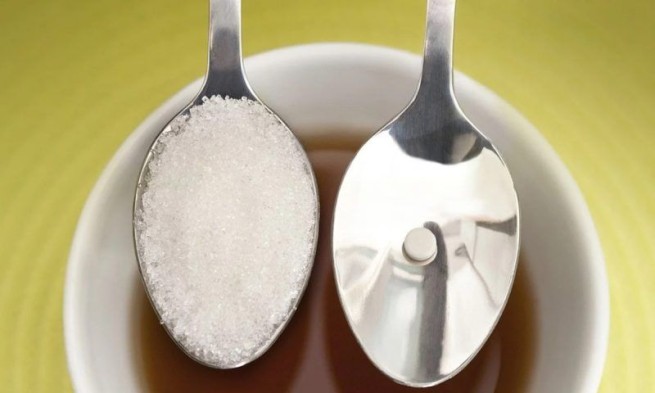In many foods, including yogurt, bread, soft drinks and thousands of other consumer products, sweet taste is not always achieved by adding sugar.
Artificial sweeteners are often added to foods, which may increase the risk of certain heart diseases, according to a new study. Years of research have led to the question of How healthy is it to eat artificial sweeteners? For example, they have long been associated with rising rates of obesity and type 2 diabetes..
A recent study published in the British Medical Journal linked consumption of artificial sweeteners to a 9% increased risk of cardiovascular disease (damage to the heart and blood vessels). Consumption of these chemicals is also associated with an 18% increased risk of stroke. In the study, experts from the University of Paris-Nord at the Sorbonne assessed the consumption of artificial sweeteners in approximately 103,000 French participants. Aspartame, acesulfame, and sucralose were the most common artificial sweeteners:
- Aspartame is associated with a 17% increased risk of stroke.
- Acesulfame and sucralose are associated with a higher risk of coronary heart disease.
Many studies have linked them to weight gain. Some experts classify them as chemicals that can increase body fat and lead to obesity. disrupting metabolism and metabolic functions.
Other studies show that between 2009 and 2012 about a quarter of children of all ages and 44% of adults reported using artificial sweeteners. Most (four in five children and more than half of adults) say they consume sweeteners every day.
The American Academy of Pediatrics (AAP) has called for more research into the effects of artificial sweeteners on children’s health, especially obesity and type 2 diabetes. It also noted possible links between artificial sweeteners and weight gain, changes in appetite and taste, diabetes and other health problems.
Artificial sweeteners can be found in more than 23,000 foods, including other highly processed foods (even sausages, bread, etc.). Even Dental products, mouthwashes and lipsticks contain artificial sweeteners.
Experts say cutting back on artificial sweeteners is beneficial for people who want to reduce their risk of developing serious health problems.







More Stories
What diseases does avocado protect against?
The next pandemic could be caused by a deadly fungus
How to cleanse your body in a few hours